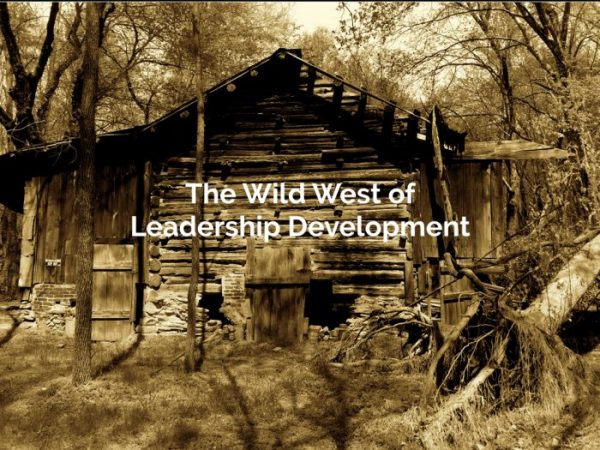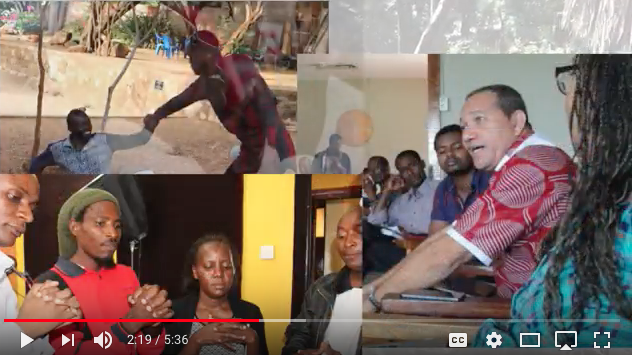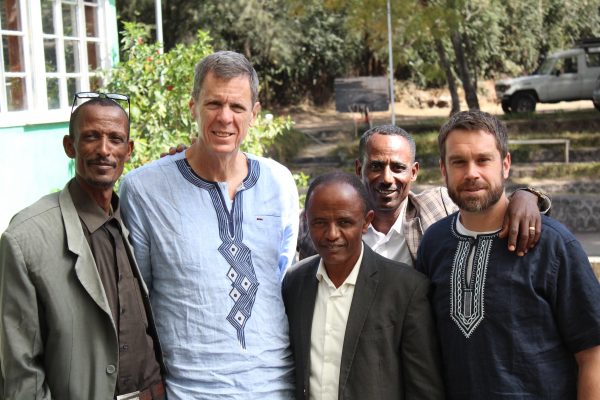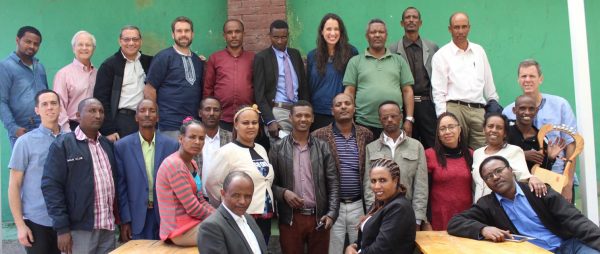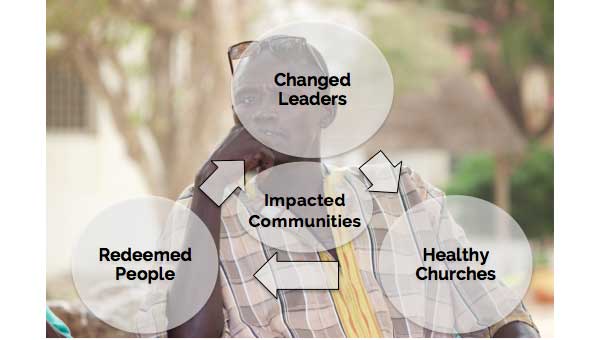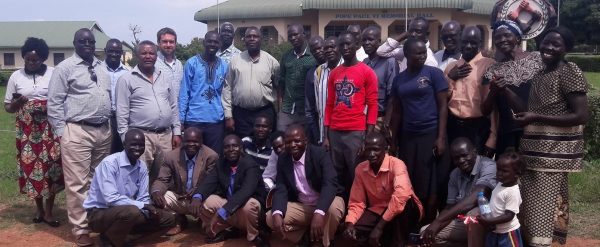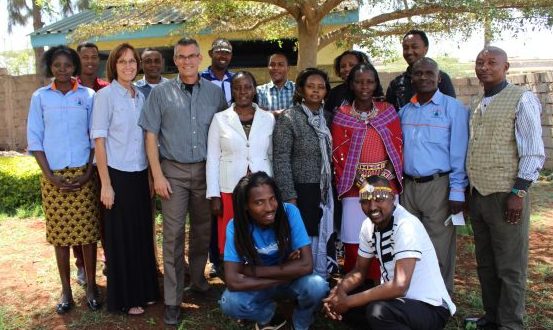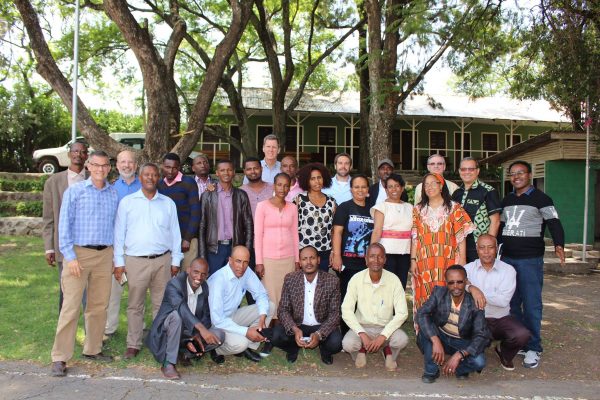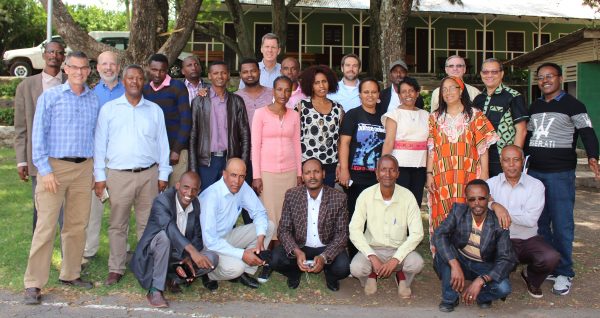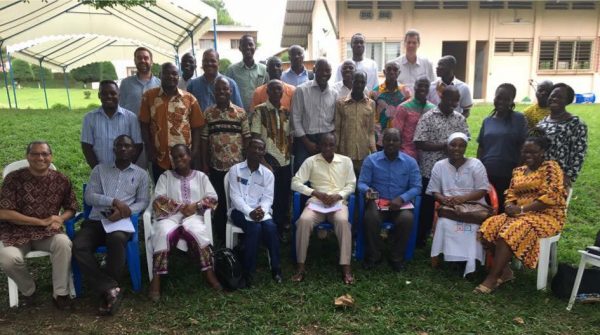It was William Shakespeare who said, “Some people are born great, some achieve greatness, and some have greatness thrust upon them.” Are leaders born or made? Are leaders in leadership because of natural giftedness or because they arose to the occasion at the time it was needed? Leadership Development or Leadership Emergence The first thing we need to establish if we’re going to have a working definition of leadership development is to differentiate it from leadership emergence.
Read moreLeadership development is often like the Wild West expansion in the mid 19thcentury. When I was in my elementary and middle school years you would most likely find me building forts in the woods creating a world of my own. My brother and I and our neighborhood friends would create new paths and “discover” new streams and ponds. These were simpler days when our time was set by the arrival of lightning bugs that signaled dinner was ready. One of my favorite forms of creative outside play was to imagine we lived in pioneer days, the days of covered wagons and panning for gold. Perhaps it was a unit we studied in school or this new computer program called “Oregon Trail” that inspired me, but I liked to imagine that quest of making our way west. At the time we lived just across the Hudson River from New York City. The idea of “westward expansion” to Oregon and California was mesmerizing.
Read moreLeadership development. It’s become something of a fad. Today organizations love to talk about it. If a church or ministry offers a “leadership development” program, then they feel like they’re well on their way. How do we define leadership development?
Read moreEvery ministry leader is a steward of power. The use of power can either cultivate potential in others and achieve desired results, or it can harm people and stall progress. Here are four lessons for leaders to keep in mind as we navigate the types of power at our disposal. Lesson #1: The exercise of power is not the same as the practice of leadership. As author Jim Collins says in Good to Great and the Social Sectors, “If I put a loaded gun to your head, I can get you to do things you might not otherwise do, but I’ve not practiced leadership; I’ve exercised power.” If people follow because they have no choice, then that’s not leading.
Read moreWhen participants complete all eight modules of Freedom to Lead’s The Garden Project (a four-year investment that involves training and transference to another generation of leaders), they receive a certificate from Belhaven University. It’s really just some nicely printed words on a piece of paper. Or is it?
Read moreThe past few weeks we began talking about Jesus, the Master Communicator. When we encounter Jesus in the New Testament we tend to view him through the lens of him as our Savior and Lord. But how often do we view him through the lens of Jesus the Master Communicator?
Read moreThe past few weeks we began talking about Jesus, the Master Communicator. When we encounter Jesus in the New Testament we tend to view him through the lens of him as our Savior and Lord. But how often do we view him through the lens of Jesus the Master Communicator? In light of this, what are some ways we can adopt this communication style in our own communication of the gospel in formal and non-formal ways?
Read moreAs we are interacting with the way Jesus communicated as a model to us all, one question comes to mind. If the communication style of Jesus was about telling relevant stories and asking good questions, what do we do with The Sermon on the Mount(Matthew 5-7)?
Read moreThe past few weeks we began talking about Jesus, the Master Communicator. When we encounter Jesus in the New Testament we tend to view him through the lens of him as our Savior and Lord. But how often do we view him through the lens of Jesus the Master Communicator? In light of this, what are some ways we can adopt this communication style in our own communication of the gospel in formal and non-formal ways?
Read moreLast week we began talking about Jesus, the Master Communicator. When we encounter Jesus in the New Testament we tend to view him through the lens of him as our Savior and Lord. But how often do we view him through the lens of Jesus the Master Communicator? In light of this, what are some ways we can adopt this communication style in our own communication of the gospel in formal and non-formal ways?
Read moreWhen we encounter Jesus in the New Testament we tend to view him through the lens of him as our Savior and Lord, the long awaited Promised One. But how often do we view him through the lens of Jesus the Master Communicator?
Read moreThis video provides a snapshot of how Freedom to Lead takes stories, images, and music to deliver time-honoring leadership principles. We have witnessed that when oral-based leaders experience the leadership principles of Jesus through stories, images, and music, their hearts are changed. As a result, communities are impacted.
Read moreMarketing specialists tend to confuse me. Their discipline is often made to seem impossibly complex. Is there a simpler way to promote our brand? One branding expert says “Yes!” He believes our most powerful marketing tool is our own story. So we’ve given it a try. In Building a StoryBrand, Donald Miller provides the basic building blocks of a good marketing story.1 He wrote, “Here is nearly every story you see or hear in a nutshell: a CHARACTER who wants something encounters a PROBLEM before they can get it. At the peak of their despair, a GUIDE steps into their lives, gives them a PLAN and calls them to ACTION. That action helps them avoid FAILURE and ends in a SUCCESS.” This kind of story helps our customers not to burn too many calories in an effort to understand o ur product.
Read moreMarketing is not my expertise. Every day solicitors come knocking via my inbox with the marketing “offer you just can’t refuse.” While I don’t know much about their complex discipline, I do know our small organization does not have money to waste. I get heartburn when other leaders spend precious dollars on marketing efforts only to get little or no results. And when they do receive the final reports, they wonder what went wrong, or worse, whether their product is really any good at all. But what if the problem isn’t the product? What if the problem is the way we talk about the product? Can we make marketing simpler?
Read moreWe need a few great leaders. But we need a whole lot more good leaders. “Wait, did I read that right? you may ask. Don’t you mean from good to great?” No. We need a few great leaders, but we need a whole lot more good leaders. Here’s why.
Read moreShortly after Jesus was born, Herod killed all the boy babies in Bethlehem because he perceived this “King of the Jews” was a political threat. Was his perception correct?
Read moreOrdering a search of “leadership development” from Google currently yields 29 million menu options. Both for-profit and not-for-profit organizations invest billions of dollars each year on strategies intended to develop leaders. The pervasive need for better leaders in all spheres of private and public life teases our appetite for solutions. But has all our investment of time, energy, and money paid off? What is the “return on investment (ROI)” for developing leaders? Do our efforts to develop leaders really work? And if so, what kind of leadership development works?
Read moreLast week we began looking at five parallels between long-distance running and Christian ministry. Today I give you numbers 6 to 10.
Read moreAs we begin a new year into 2018, I see great parallels between long-distance running and the ministry we have with Freedom to Lead. These are personal things I’m learning as I’ve been putting my feet to the pavement these days. Let’s look at ten of these parallels as we “run hard” into a new year with new beginnings.
Read moreWe are living in what may be the most exciting era in church history. Unprecedented opportunities abound to expand the kingdom of God, and the church of Jesus Christ is advancing despite social, cultural, and spiritual forces.
- Imagine small groups of world-changers engaging in deep discussion about leadership and the church.
- Imagine biblical and cultural stories being told one to another.
- Picture dramas that make these stories come alive. And music created just for them belted out with joy.
- Imagine all of this happening without written words.
Leaders who are able to develop critical leadership competencies regardless of their level of literacy. Leaders who emerge from painful experiences and cultural limitations to be set free to lead their churches and communities.
Read moreOriginally Posted in October 2017 by Evangelical Missions Quarterly (EMQ) —Reviewed by Benjamin Espinoza, PhD student, Michigan State University. Story has become a topic of interest for many scholars, pastors, and missionaries. As Christians, we are called to be participants in the greatest story of all time, the gospel. Rick Sessoms estimates that eighty percent of the world’s people are “story-centric learners,” meaning they learn through storytelling (drama, art, music, etc.). This provides a unique opportunity for us to ponder how we can take the gospel to the ends of the earth using story-based methods and leadership approaches. Sessoms has written an insightful volume on story-centric, Christ-centered leadership which will equip a new generation of Christian leaders to share the greatest story of all time.
Read moreThere are many reasons why people may not feel able to lead their churches and communities. Maybe their cultures say they are not qualified. Maybe they can’t lead because some painful experience in the past causes them to shy away from taking on leadership roles. Freedom to Lead International sets out to do just what the name implies. We speak into those issues and cultivate in people a “freedom to lead.”
Read moreHere we are currently in Ethiopia. As I look around. I’m astounded that most of these leaders have been persecuted for this faith, some imprisoned and tortured. I am humbled that we can walk alongside them in their development, for we have a lot to learn from these incredible men and women. These past two weeks we have been teaching on Spiritual Leadership and Leading Teams to these participants. When we leave from this place I will return with our team to the States where we’ll celebrate Christmas in safety with our loved ones. When these leaders depart from this gathering they will face injustice, and will dare to be lights in dark places. But they will thrive because they go in the strong name of Christ. We have a lot to learn from them. In six months they will: come back for our next visit to Ethiopia. return to be with us because they truly want to learn and dialogue together as a group about how Christ-centered leadership can be played out in their specific contexts. report the way that God has changed them in their leadership, thus changing their churches. share about the times they have messed up as leaders and will receive the grace that Jesus freely offers. And we will have their names on our lips as we leave from here and will remember to bring them before the Father. I don’t say these things because I’m depending on this great program we call The Garden Project. This
Read moreWhat is your favorite hymn? Recently on Facebook, a question was raised. It was a simple question, really. “What is your favorite hymn? The pull-at-your-heartstrings kind of favorite hymn?” Thinking it would get lost in the plethora of political squabbles and cute kitten videos, I didn’t think anyone would respond.
Read moreLast week we started by asking, “What happens on the Wednesday after Giving Tuesday?” In the several weeks between now and the end of the year we are inviting you to “go beyond” and take part in what God is doing through Freedom to Lead International®. Empowered by the Spirit, Freedom to Lead is catalyzing a cycle: We cultivate Christ-centered leaders. These leaders foster healthier churches. These churches attract new people who often become redeemed people. These people impact their communities with the gospel and become a fresh coalition of potential Christ-centered leaders. In other words, the cycle begins with changed leaders, and the outcome is changed churches, people, and communities.
Read moreThis week in America our families and friends will gather for a day of Thanksgiving. Since my heart surgery in September I have not eaten much sugar, gluten, or dairy, but for this special occasion I am looking forward to the carrot cake that will be made from my mother and grandmother’s recipe.
Read moreLeaders possess disproportionate leverage to advance a positive agenda or to impede progress in their corporations, communities, churches, and nations. For Good or for Bad President Bashar al-Assad, an egomaniacal leader with access to chemical weapons – wields far more power than a volunteer group that works tirelessly to lift up oppressed Syrian women. Kim Jong-un, North Korea’s reckless chairman who inherited his father’s unbridled power, holds nations in anxious limbo while a faith-based team in Pyongyang seeks peace without much notice. Nelson Mandela’s singular influence released a nation from oppression. And Steve Jobs’ foresight. changed the way the whole world listens to music. Histories of human societies chronicle consistent narratives of a few leaders whose disproportionate leverage brought either harm or healing to the masses. Today billions of people’s lives and futures are in peril because of a few tyrants. And billions of others have hope because of a few influential visionaries.
Read moreFreedom to Lead International® (FTL) recently traveled to work with a group of second generation leaders that are being developed in Adjumani, Uganda through The Garden Project. These Christian leaders are primarily refugees that have fled from Sudan. In light of their war-torn lives, the Sudanese brothers and sisters found FTL’s module on Peacemaking to be especially relevant. When I returned home, I was reminded that we also need leaders who seek peace. Is All Conflict Sin?
Read moreWhat does saying “yes” to God look like for Mary Lu and her husband Doug? Read her story about how saying “yes” brought her to Freedom to Lead International.
Read moreA World in Need These past couple of weeks have seemed overwhelming. Hurricane Harvey in Texas. Wildfires in the Pacific Northwest. Floods in South Asia. Mudslides in West Africa. Earthquake in Mexico. And we are currently in the midst of historic Hurricane Irma as it is making landfall in the Caribbean and Florida. Out of a real sense of compassion we then respond in the ways we know how: we take out our checkbooks and offer our prayers, maybe even join the relief efforts if we are able. But, if we are honest, we are also asking “how do we go from one major crisis to another without being completely depleted? Can I really care about everything?” How do we respond as leaders without going mad?
Read moreInstinct, a 2014 film about the interactions of a young, ambitious psychiatrist (played by Cuba Gooding) with a convicted killer (brilliantly enacted by Anthony Hopkins), highlights many leaders’ common illusion.1
Read moreI always knew it was Wednesday because they tortured me every Wednesday. One huge benefit of FTL’s ministry is the privilege of partnering with some extraordinary leaders. Some of these leaders have faithfully and effectively served the church in their context for decades. They are compelled by the love of Christ. They have committed themselves, their families, and their futures to reach others with the Good News. In many cases, they have paid a stiff price for their resolve. These brothers and sisters are the heroes of FTL’s story. One of these leaders is one we will call “A”. “A” calls Addis Ababa, Ethiopia home, but his travels take him far beyond. His broad impact for Christ throughout East Africa has been monumental. Yet his reputation has not come without a price. During Ethiopia’s communist regime (1987-91), “A” was imprisoned for his bold Christian witness. Although he lost track of time behind bars, he recalls, “I always knew it was Wednesday because they tortured me every Wednesday.” Those times were dark and very difficult for his wife “E” and her small children, but eventually Truth prevailed. For the past twenty-five years, “A” and “E” have dedicated their lives to develop leaders for the church. We met “A” in 2012. Today he invests much of his time and energy teaching and mentoring with The Garden Project, FTL’s leadership development program for storycentric communicators. Initially, he brought together 20 key Ethiopian leaders to learn The Garden Project’s Christ-centered leadership principles. In the
Read moreDuring the summer that I turned 37, my mentor asked me, “Have you decided what you want to be when you grow up? And how can I help you get there?” His tone was gentle. His words were warm. But his question was serious. It seems like the kind of question you ask a 5-year old. Or of someone who just finished high school. But at 37, much of my adult professional life has already been lived. I’ve grown in some areas, I’ve failed in others, but I’ve been doing it. Gone are the days of my idealistic youth. Idealism doesn’t leave a whole lot of margin for internal politics, unhealthy work cultures, and flawed systems. Nor does it account for the fact that we need to learn to master the “waiting game” as unfulfilled dreams to change the world rest.
Read moreLast month Freedom to Lead International was in Ethiopia. This is a report from the President. Dear Friends, Thank you for praying as seven FTL team members from various locations travelled safely, and everyone stayed relatively healthy. Our indigenous ministry partners were very excited as they learned two modules of The Garden Project: Peacemaking and Spiritual Leadership. They reported on the profound impact of former FTL modules both on themselves and on those they lead.
Read moreIn order to reach many, invest in a few. How does a half dozen people reach 5000 unengaged Christian leaders in Africa?
Read moreBig Boss Leader Imagine 27 church and mission leaders from Cote d’Ivoire, Benin, and Madagascar gathering together to engage in stories and discussions about Leadership for a Healthy Church. This is what we have been privileged to witness this past month. Water Pump or Rice Field One participant shared that he had a vision the night before of a water pump that would not yield water. He said, “in my vision, I was so thirsty so I used the water pump but no water came out. I did not know what the vision meant.” What he later came to learn was that the image of a rice field vs. water pump style of leadership is our driving image for this first leadership module. We encourage the leaders to be “rice-field” (Christ-centered) leaders rather than “water pump” (power, big boss) leaders. It’s a simple image, but it has profound impact.
Read moreOn the night before His crucifixion, Jesus said to His disciples, “If you remain in me, and I in you, you will bear much fruit.” These disciples did remain in Christ, and God used them beyond their wildest imagination. What is happening in this church?
Read moreTeaching About Peacemaking Through Song Today we’d like to feature a song from Freedom to Lead International®‘s (FTL) most recent trip to Bamako, Mali. It is here where indigenous musicians developed culture specific songs to go along with FTL’s leadership development module on Peacemaking.
Read moreThe Story of Rev. Gupta Rev. Gupta was a well-loved pastor in his rural community for many years. He brought together his friends Raju and Geeta to help build the church and these people became life long friends. The community was being reached with the gospel, people were being baptized every week, and the church was growing. Rev. Gupta was able to get further study in a neighboring city. As the church started to expand and new ministries were being added, several things began to happen. Raju and Geeta were concerned by the changes they were seeing in Rev. Gupta (or, rather, as he now wanted to be referred to as Dr. Gupta). As the ministry grew under Dr. Gupta’s leadership, he was invited to travel and teach and, in the process, became a sought-after conference speaker. It wasn’t long, however, before the early signs of “big boss sickness” began to appear. He began to take control of every aspect of the ministry. In some ways he had become the traditional power leader like some of his contemporaries. He had started well, but he was finishing poorly. For many of us, this story is all too real. We could probably identify a “Rev. Gupta” in our lives. Or maybe we have been “Rev. Gupta” in our own stories. If we leave it at this, though, how much is the story really impacting us? We catalog it away and move on to the next story. Storytelling Comes With Questions The use of storytelling
Read moreThere is a group of ladies at the local church. You know them. You can even picture their faces in your mind. On the outside they look like they lead simple, quiet lives. They’ve raised their families. They work in their gardens. They bring casseroles to the sick. They gush over new babies and encourage blushing new brides. They sell handmade items at craft fairs to raise money for world missions. They give advice on how best to thaw that frozen chicken. They bring jars of honey and jam as gifts. Many have husbands who are also active in the church.
Read more
